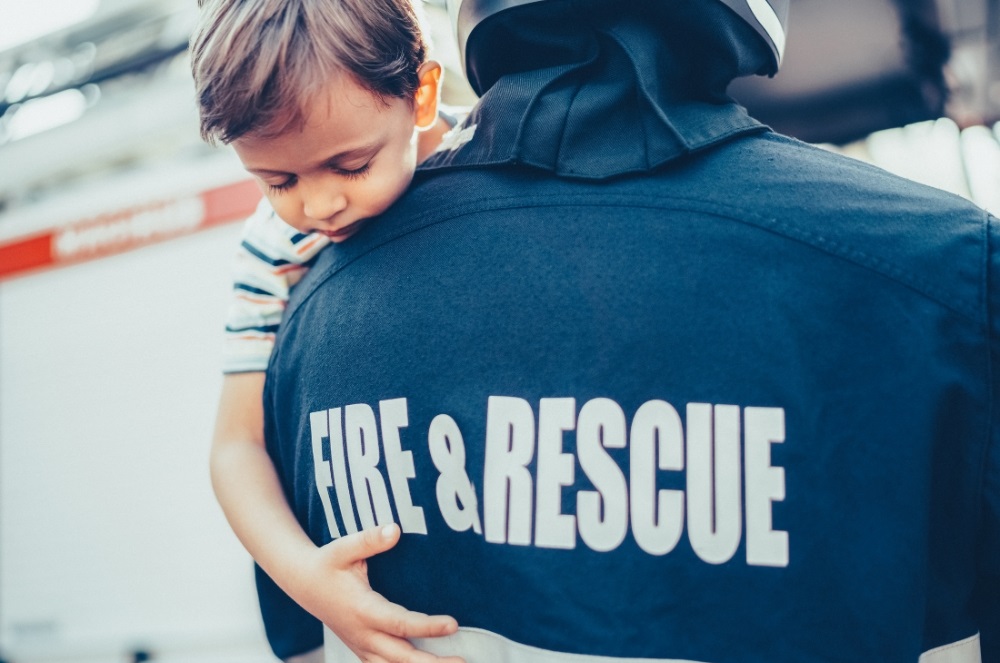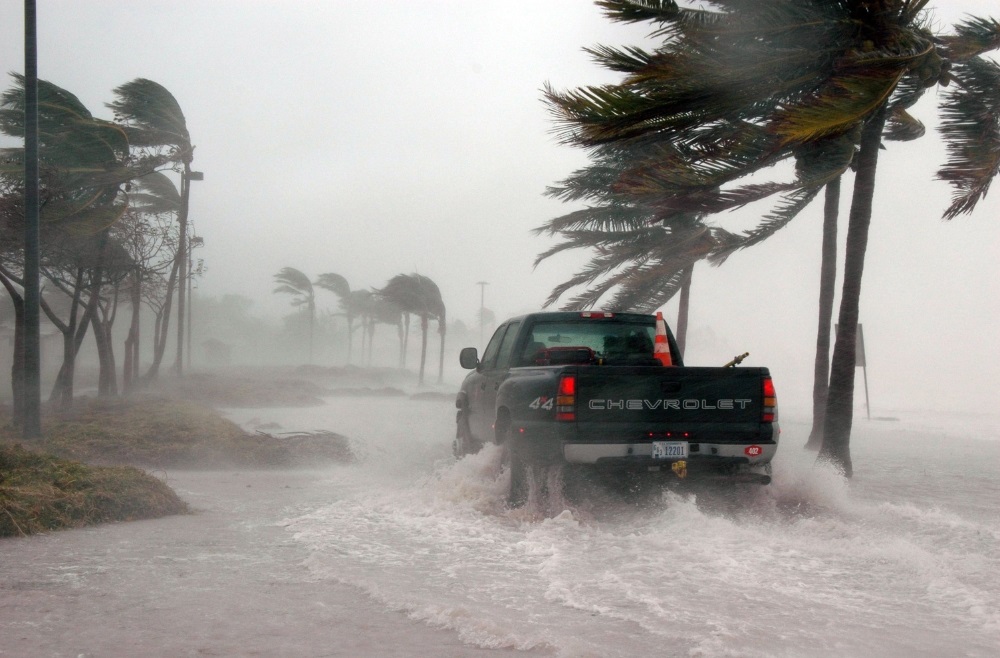In response to the widespread devastation, various governmental and non-governmental organizations have mobilized to offer aid and rebuild the affected areas. The recovery efforts have been extensive, focusing on restoring power and infrastructure, and providing shelter and care to those displaced. The resilience shown by the communities, with support from the federal government and organizations like the Department of Homeland Security, underscores a collective commitment to overcoming the challenges posed by Hurricane Helene.
The Impact of Hurricane Helene
Hurricane Helene, categorized by the National Hurricane Center as a Category 4 storm, caused significant damage after making landfall. The storm's trajectory through the Gulf of Mexico into South Carolina and Tennessee prompted widespread assessing of damage. Financial assistance has been crucial in these efforts, with organizations such as the American Red Cross playing a pivotal role in relief operations. The impact of Helene underscores the unpredictable nature of hurricanes and the importance of preparedness and support networks.
Communities Devastated with at Least 64 Dead
The devastating toll of Hurricane Helene is evident, with at least 64 lives lost to flooding and mudslides. State officials have been working tirelessly to address the immediate needs of affected communities, emphasizing the severity of the storm's impact. The widespread damage and loss of life call for continued support and resources to aid in the recovery and rebuilding process, highlighting the critical nature of emergency preparedness and response efforts.
Infrastructure and Power Outages Across the Southeast
The path of destruction across Florida has been extensive, with infrastructure severely impacted and power outages leaving millions in the dark. Rescue efforts have been underway, with teams working diligently to restore services and provide aid. The Nolichucky River's rise and the situation at Unicoi County Hospital exemplify the challenges faced in the wake of Hurricane Helene, underscoring the importance of swift and coordinated response efforts to mitigate the effects of such calamities.
Over 2 Million Customers Facing Powerlessness
In the aftermath of Hurricane Helene, over 2 million customers found themselves without power in Florida, highlighting the storm's extensive impact on the state's electrical grid. The efforts to restore power have been ongoing, with utility companies and emergency workers pushing tirelessly to bring light and normalcy back to the affected areas. This situation underscores the vulnerability of infrastructure to natural disasters and the critical need for robust emergency preparedness and response strategies.

Rescue and Relief Operations in Full Swing
As Hurricane Helene's aftermath unfolds, rescue and relief operations have kicked into high gear. Teams across the affected regions have been mobilized to assist those in urgent need, emphasizing the widespread nature of the disaster and the commitment to recovery. The focus has been on saving lives, providing shelter, and ensuring the well-being of those impacted, showcasing a united front in the face of adversity.
Florida's Massive Rescue Efforts
In Florida, the response to Hurricane Helene has been monumental, with MacDill Air Force and other agencies leading massive rescue efforts in Tampa Bay and surrounding areas. The dedication of these teams has been crucial in navigating the challenges posed by rising waters and ensuring the safety of residents. These efforts highlight the critical role of coordinated disaster response in saving lives and mitigating the impact of such devastating events.
At Least 190 People Rescued Amidst Rising Waters
As Hurricane Helene struck the Bend region as a Category 4 hurricane, rescue operations were promptly launched, resulting in at least 190 people being saved from the perilous conditions. The region, facing the brunt of the storm, saw millions of customers without power, underscoring the massive scale of the emergency response required. These efforts showcase the bravery and dedication of rescue teams working against the odds to safeguard communities.
Displacement and Shelter Challenges
The aftermath of Hurricane Helene has led to significant displacement and shelter challenges, particularly in areas like Pinellas County. The need for safe, accessible shelters has become a priority, with emergency management teams working tirelessly to accommodate those affected. The situation underscores the importance of effective disaster preparedness and the need for comprehensive support systems to assist those displaced by such catastrophic events.
Pinellas County: A Case of Displacement
In the aftermath of Hurricane Helene, Pinellas County has emerged as a focal point of displacement challenges. Duke Energy and emergency management directors have been at the forefront, addressing power outages and ensuring the safety of residents, particularly on the barrier islands. These efforts reflect the broader challenges faced in the wake of Helene, emphasizing the need for robust support mechanisms and the critical role of community resilience in overcoming the obstacles presented by natural disasters.
Governmental and Organizational Support
In the wake of Hurricane Helene's devastation, governmental and organizational support has been instrumental in addressing the immediate and long-term needs of the affected communities. The collaboration between federal, state, and local agencies, along with non-profit organizations, has paved the way for comprehensive recovery efforts, demonstrating a unified approach to disaster response and resilience.
President Biden's Commitment to the Affected
President Biden has expressed a strong commitment to supporting the communities devastated by Hurricane Helene. This pledge underscores the federal government's dedication to aiding in the recovery process, providing the necessary resources and support to rebuild and restore the affected areas. The President's involvement highlights the significance of national leadership in times of crisis, ensuring that no community is left behind in the wake of such disasters.
FEMA's Role in Helene's Aftermath
FEMA has played a crucial role in the aftermath of Hurricane Helene, particularly in areas like Western North Carolina. The agency's response has included mobilizing resources to address power outages, secure propane tanks, and assess damage from Helene, including in historic Biltmore Village. FEMA's involvement is a testament to the agency's commitment to facilitating recovery and offering support to those in need.
More than 3,200 Staff and Partners Mobilized
The Federal Emergency Management Agency (FEMA) has mobilized more than 3,200 staff and partners in response to Hurricane Helene's impact. This large-scale deployment includes rescue teams and other personnel dedicated to aiding in the recovery efforts, showcasing the federal government's robust response to natural disasters. The collective efforts of FEMA and its partners are essential in addressing the immediate needs of affected communities and laying the groundwork for long-term recovery.
Federal Assistance and Disaster Declarations
Following the devastation of Hurricane Helene, President Joe Biden approved a disaster declaration for North Carolina, unlocking federal funding for recovery efforts. This critical step ensures that the necessary resources are available to rebuild and support the affected communities. The declaration is a clear indication of the federal government's commitment to aiding in the recovery process, providing a foundation for the long journey towards restoration and normalcy.
Major Disaster Declaration Approved for Florida
After the widespread devastation caused by Hurricane Helene, President Joe Biden approved a major disaster declaration for Florida. This crucial step unlocks federal funds aimed at supporting the recovery and rebuilding efforts in the affected regions. It's a beacon of hope for many communities grappling with the aftermath, providing much-needed assistance for repairs, reconstruction, and aid for the displaced. The declaration is a testament to the severity of Helene's impact and the urgent need for a comprehensive response to help the state bounce back.
Helene 'Sounded Like a Freight Train,' Says Valdosta Resident
Residents of Valdosta experienced the terrifying force of Hurricane Helene firsthand, with many comparing the sound of the storm to that of a freight train barreling through their town. The intensity of the wind and the relentless rain left an indelible mark on the community, highlighting the sheer power of nature's fury. These vivid descriptions serve as a stark reminder of the challenges faced during the storm and underscore the importance of preparedness and resilience in the face of such natural disasters.
Calls for Community Support and Solidarity
In the wake of Hurricane Helene, there's a growing call for community support and solidarity. The devastation has brought to light the critical need for neighbors to come together, offering whatever assistance they can to those most affected. From donating to relief funds to volunteering for cleanup efforts, every action counts. This collective spirit of compassion and cooperation is essential for the healing process, helping to mend the social and physical fabric of the communities hit hardest by the storm.
The Long Road to Normalcy
The Department of Transportation, along with other federal and local agencies, is spearheading the monumental task of restoring normalcy in the aftermath of Hurricane Helene. Roads, bridges, and public transportation systems are under rapid assessment and repair to ensure safe travel and access to essential services. However, the journey to full recovery is expected to be lengthy, with priorities set on rebuilding infrastructure, restoring power, and ensuring the well-being of the displaced. The resilience of the affected communities will be tested as they navigate through these challenging times.
Challenges and Priorities in the Coming Weeks
As the initial shock of Hurricane Helene subsides, the affected regions face a myriad of challenges and priorities in the coming weeks. Foremost among these is the restoration of power to over 2 million customers left in darkness. The sheer scale of infrastructure damage demands urgent attention, with emergency crews working tirelessly to clear debris and repair power lines. Additionally, ensuring access to clean water and healthcare services remains critical. The focus is on a swift, efficient response to alleviate suffering and jumpstart the lengthy process of recovery.
The Resilience of Human Spirit and Community Bonds
The aftermath of Hurricane Helene has been a profound testament to the resilience of the human spirit and the strength of community bonds. Faced with loss and devastation, individuals and communities have rallied together, sharing resources, providing shelter, and supporting each other through unimaginable hardships. This solidarity is the foundation upon which recovery is built, proving that even in the darkest of times, humanity's capacity for kindness and resilience shines brightly. It's this collective spirit that will guide the affected areas back to a sense of normality and peace.
In Conclusion: Uniting in the Face of Tragedy
Hurricane Helene's passage has left a trail of destruction but also a remarkable legacy of unity and determination. From the emergency declarations that mobilized national resources to the local volunteers conducting welfare checks, the response has been a powerful demonstration of what can be achieved when we come together in the face of tragedy. As South Carolina and Virginia join Florida in the recovery process, the lessons of solidarity, resilience, and community support are more important than ever. Uniting in the aftermath of Helene, the affected regions are slowly but steadily paving their way towards rebuilding and healing.



